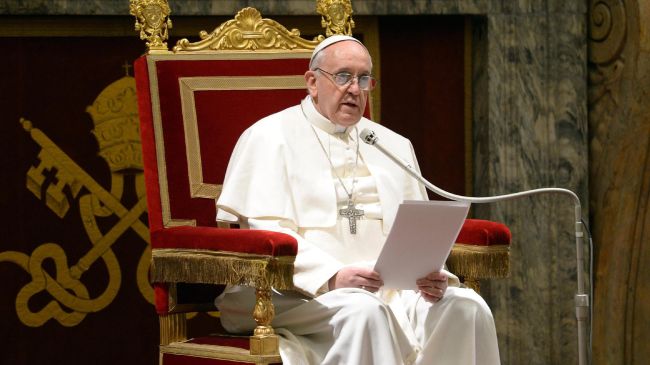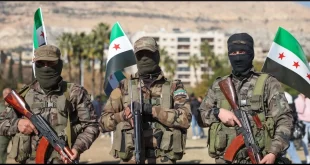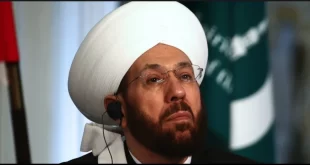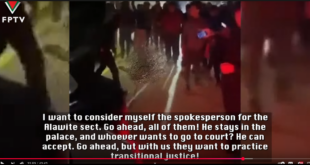
Jan 2, 2014, Information Clearinghouse
In his annual New Year’s address, Catholic Pope Francis sounded particularly vexed when he urged an end to wars and conflict.
“What on Earth is happening in the hearts of men? What on Earth is happening in the heart of humanity?” the pontiff decried to tens of thousands gathered in St Peter’s Square, Rome, earlier this week.
“It’s time to stop!” he added in anguished tone and urged the world to “listen to the cry for peace”.
The Pope’s anti-war sentiment and desire for peace is laudable. But he needs to do more than merely issue vague exhortations.
As the figurehead of some one billion Catholics around the world, Pope Francis needs to show real leadership by specifying the cause and source of much of the violence raging in today’s world.
The Argentine-born pontiff, who was elected to the papacy in March last year, has garnered a reputation for humility and being “a man of the people”. Apparently, he has eschewed living in the plush Apostolic Palace, choosing a simple abode instead. Time magazine voted him “Person of the Year”.
He has previously come out criticizing the excesses of capitalism, and the chasm between a global rich elite and the growing masses of poor. But when those comments caused some media controversy, the Pope back-pedaled and declared: “I am not a Marxist”. The latter comment can be seen as the pontiff indicating that he is not fundamentally opposed to capitalism.
This compromising ambiguity was on display again this week in Pope Francis’ call for “an end to wars”.
Reuters reported: “Pope Francis delivered an impassioned New Year’s peace address on Wednesday, saying the heart of humanity seemed to have gone astray and too many people were still indifferent to war, violence and injustice.”
Perhaps the Pope is spending too much time in solitude – because his assessment of humanity seems way off the mark. For the heart of humanity has certainly not gone astray, and rather than being indifferent to war, violence and injustice, too many people across the globe are increasingly sick and tired of war.
Poll after poll in the US, Europe and elsewhere around the world shows that ordinary citizens are fervently against incitement of further wars. For example, when US President Barack Obama was planning to launch all-out air strikes on Syria last September, the American and European public mobilized swiftly and decisively to face down any attempt by Washington to escalate violence in the Middle East region.
Similarly, polls in the US have consistently shown the American public to be opposed to their government’s belligerence towards Iran – a factor that has undoubtedly led to the White House adopting relatively more reasonable diplomacy in the P5+1 nuclear negotiations.
And it’s not just that world public opinion is ardently against war. The world’s people also know where much of this systematic violence is coming from – the United States of America.
This week a worldwide poll conducted by Win/Gallup reported that most people surveyed from 65 countries view the US to be the biggest threat to international peace.
It’s not just Washington of course. The US plutocracy is but the head of a cabal of Western imperialist powers and their regional proxies, such as the Zionist Israeli regime and despotic Saudi Arabia.
Together, this US-led Axis of Evil is the main wellspring of war in the world. These are the names that the Pope needs to mention, and the system that he needs to specify is imperialism in the service of global capitalism.
A brief review of world violence and potential for war over the past year – which apparently has so vexed the Pope – shows the ubiquitous hand of American-led imperialism.
In Afghanistan, Pakistan and Yemen, hundreds of people were massacred in US-led drone and air strikes. This White House sanctioned slaughter has become an endemic perennial war crime.
In Syria and Iraq, thousands of innocents were slaughtered by extremist mercenaries under the guise of al-Qaeda, created and sponsored by Western military intelligence. The lead role adopted recently by Saudi Arabia in fueling these death squads does not in any way absolve the US and its British and French allies from complicity. These extremist brigades were created by the West going back to late 1970s and supported until the present day – despite Western media obfuscation.
This Western state-sponsored terrorism operating for the objective of regime change in Syria – where some 130,000 have been killed in the past three years – is in the service of Western-based capital and its geopolitics. It has its antecedent in the US-led Iraq War beginning in 2003 – where more than one million were killed – and in the more recent disastrous NATO toppling of Libyan leader Muammar Gaddafi.
Western imperialism can also be identified in the rising warmongering tensions between the US and Russia, and between the US and China. The relentless expansion of US nuclear missiles on the borders of Russia and the gratuitous provocations towards Beijing over its natural territorial claims are testament to the lust for war inherent in American-led imperialism.
In Africa, violence continues to plague Somalia because of US-led predation in that country which has resulted in a fractious failed state. South Sudan has become beset with tribal strife and civil war largely because its unstable creation in July 2011 was at the behest of Western imperialist meddling.
Killing and a humanitarian crisis in the Central African Republic have also increased in recent weeks. That crisis was precipitated by French military invasion of that country last month – under the pretext of humanitarian relief – and with the full support of Washington and other European powers.
This French-subcontracted Western imperialism in Africa with a view to stymieing China’s legitimate commercial gains on the continent is destabilizing several other countries and creating the conditions for a new bloody Scramble for Africa.
In light of all this Western-instigated and fueled conflict and suffering around the world, Pope Francis’ vague call for peace seems more like a white wash of the culprits.
His call for peace would be more relevant and effective if he condemned specifically and categorically the source of world conflict and war – US-led imperialism. The attribution of this source is not a matter of opinion; it is a matter of provable cause and effect.
For the Pope to merely lament “humanity’s indifference and heart going astray” is meaningless to the problem of conflict facing humanity and how it might be challenged. To remedy a disease effectively, one has to diagnose the disease, accurately and precisely. In that context, the Pope’s anti-war ambiguity is only part of the problem, not part of the solution.
Finally, it should be noted that the Pope’s native continent of South America has in the past year, as in other recent years, enjoyed relative peace and cordial relations between neighboring countries. A major reason for this welcome development in international relations is because South American nations have shown admirable solidarity in quarantining the disease of US imperialism from that continent, thanks
in large part to the late Venezuelan leader Hugo Chavez.
Pope Francis should take note of that glaring beneficial result, draw the appropriate conclusion and speak out. Maybe he should read up more on imperialism. Then he might be able to call for world peace with more clarity and credibility.
In doing so, however, Time Magazine would probably revoke his “Person of the Year Award”. But, at least, the Pope would show himself to speak the truth and to be a real man of the people.
 Syria Support Movement solidarity with the Syrian people
Syria Support Movement solidarity with the Syrian people




